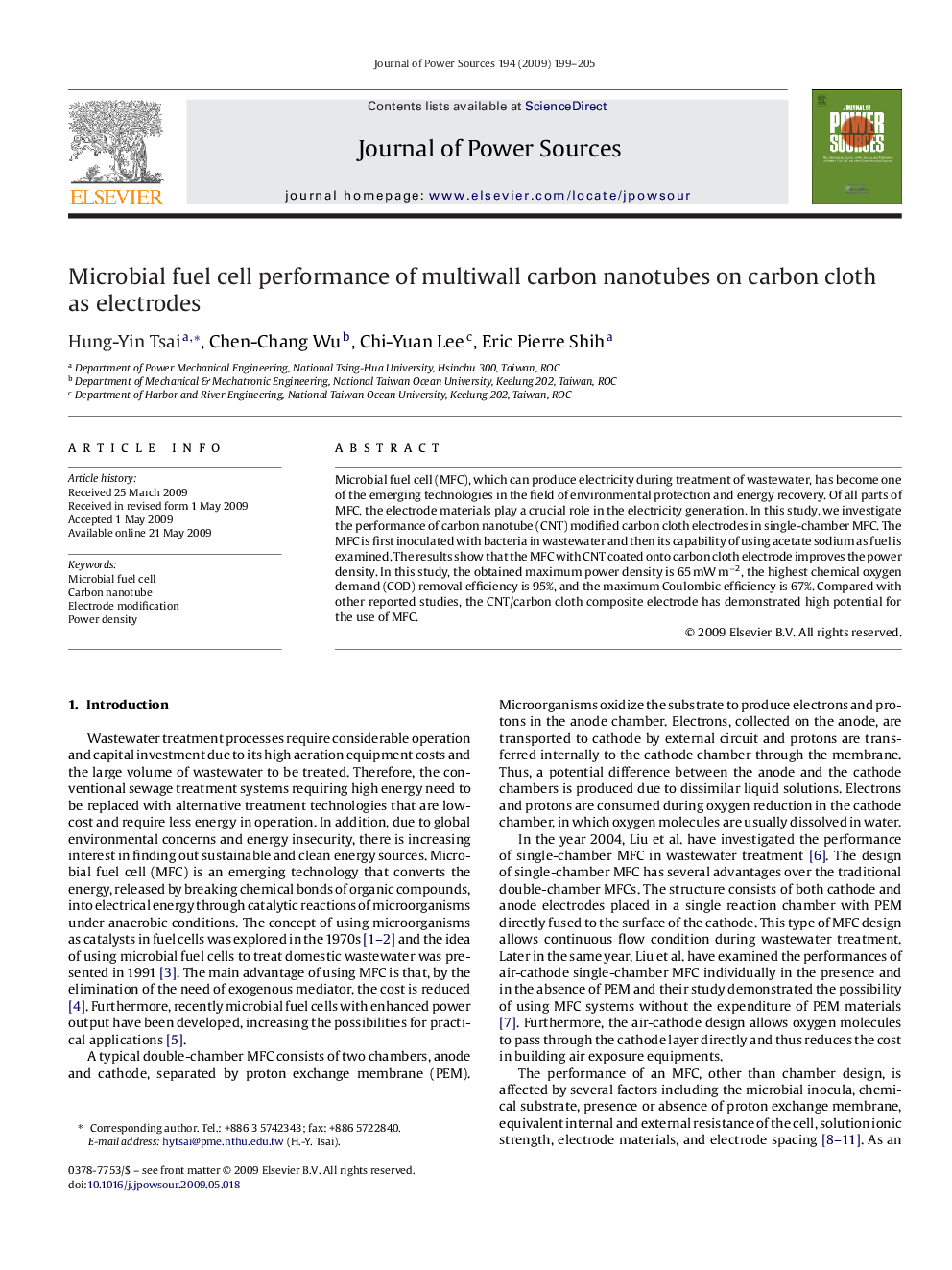| Article ID | Journal | Published Year | Pages | File Type |
|---|---|---|---|---|
| 1289834 | Journal of Power Sources | 2009 | 7 Pages |
Microbial fuel cell (MFC), which can produce electricity during treatment of wastewater, has become one of the emerging technologies in the field of environmental protection and energy recovery. Of all parts of MFC, the electrode materials play a crucial role in the electricity generation. In this study, we investigate the performance of carbon nanotube (CNT) modified carbon cloth electrodes in single-chamber MFC. The MFC is first inoculated with bacteria in wastewater and then its capability of using acetate sodium as fuel is examined. The results show that the MFC with CNT coated onto carbon cloth electrode improves the power density. In this study, the obtained maximum power density is 65 mW m−2, the highest chemical oxygen demand (COD) removal efficiency is 95%, and the maximum Coulombic efficiency is 67%. Compared with other reported studies, the CNT/carbon cloth composite electrode has demonstrated high potential for the use of MFC.
